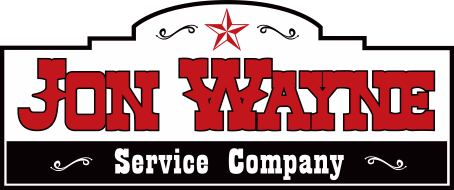Why Is My AC Blowing Hot Air?
The last thing you want on a hot and humid day is to feel hot air blowing from your AC.
Don’t worry—we’ll help you troubleshoot this frustrating problem.
First, go to your thermostat and verify the following:
- Make sure the thermostat is set to COOL
- Check that the fan setting is set to AUTO so that the AC will only push air into your home if it’s cooled
If your thermostat is set correctly but you still feel warm air, your air conditioner may have one of the following problems:
- A frozen or dirty evaporator coil
- A dirty outdoor unit
- An issue with the compressor
We’ll explain all of these issues in more detail below. And we’ll tell you right off the bat that some of these problems require professional expertise to fix. So if you’d rather skip the explanations and get help ASAP, go ahead and call an AC pro for assistance.
Want a San Antonio professional to repair your AC? Our techs are standing by, ready to help.
Problem #1: A frozen evaporator coil
The evaporator coil (located in the inside unit) is the AC part that actually cools your home’s warm air.
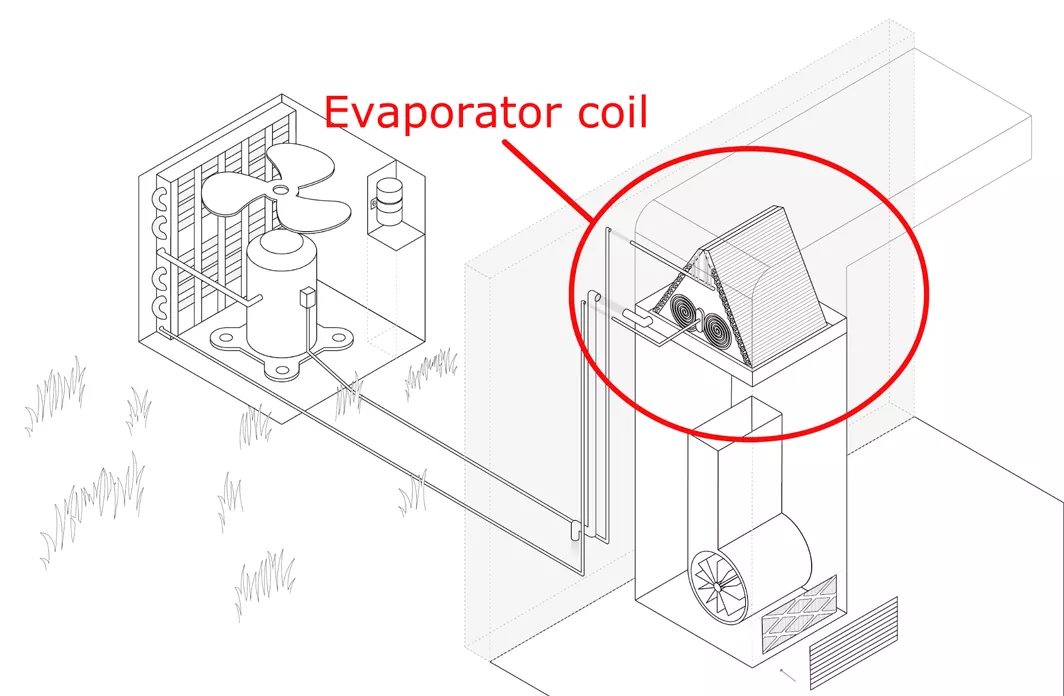
The evaporator coil is located inside the air handler, which is the indoor unit of your AC system.
Inside the evaporator coil, a liquid substance called refrigerant absorbs heat from warm air as it passes over the coils, turning the air cold. This cold air is then pushed back into your home to lower the indoor temperature.
However, if the evaporator coil freezes over, you’ll start to have problems. Though it may seem like really cold coils will make your home’s air super cold, the opposite is true. If the coils get too cold and end up freezing over, the ice buildup will create a barrier that prevents the refrigerant from absorbing heat.
The result? The air being pushed out of your vents will be warmer, and your AC will struggle to cool your home.
How to know if you have a frozen evaporator coil
Besides the hot air issue, the following signs also indicate you may have a frozen evaporator coil:
- A musty smell around the air handler
- Pools of water around the air handler
- Ice buildup on the outdoor refrigerant lines
What causes a frozen evaporator coil (and how to fix it)
The most common problems that cause an evaporator coil to ice over include:
- Airflow restrictions, such as a dirty air filter or closed vents
- Refrigerant leaks
- Fan issues
- Dirt buildup on coils
Learn more about these problems by reading our blog, “AC Coils Freezing Up? When to Call a Pro.”
The first thing you’ll want to do is make sure your air filter is clean and that all vents in your home are open and unobstructed.
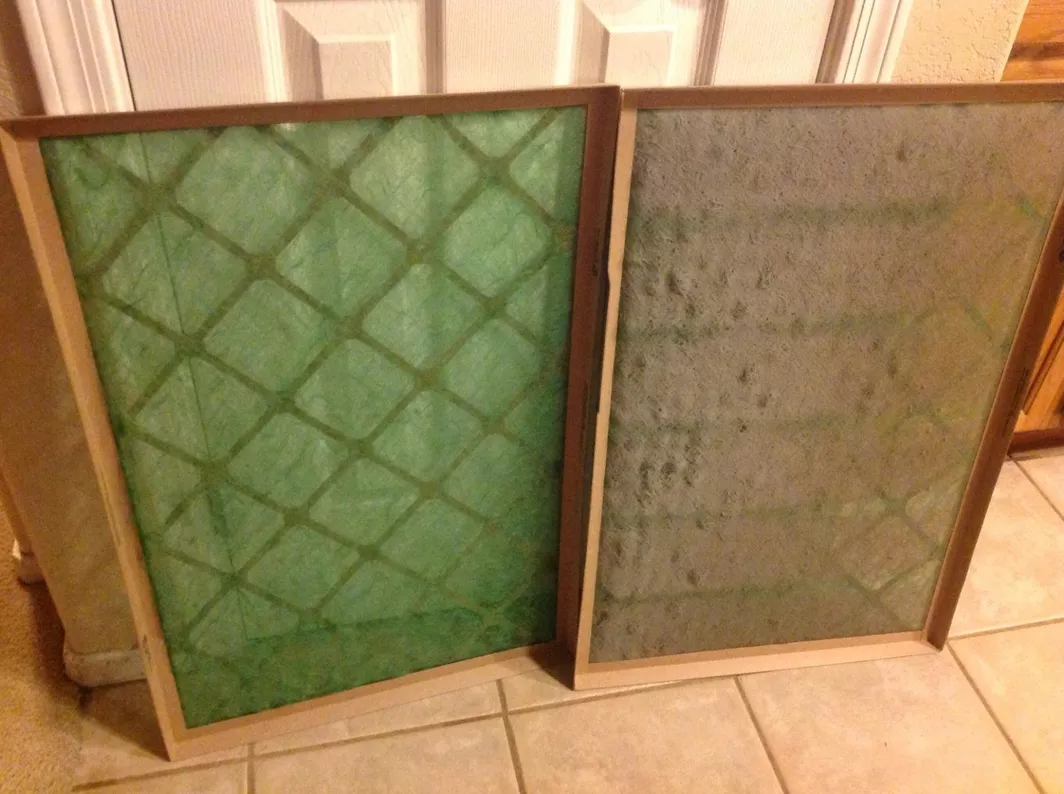
If your air filter looks like the one on the right, it’s dirty and should be replaced
If the hot air problem persists after you’ve inspected the air filter and vents, your AC may have one of the other problems we mentioned, such as a refrigerant leak or a broken fan. These issues are complex and require extensive HVAC knowledge to fix, so it’s best to hire a professional.
We also do not recommend cleaning the evaporator coil yourself because the coils are fragile and can be easily damaged. An HVAC professional will have the proper tools and equipment to clean the coils safely and effectively.
Problem #2: A dirty outdoor unit
Above, we discussed how refrigerant absorbs heat from your home’s warm air at the air handler. This is the first phase of the cooling process. The next phase of the cooling process takes place in the outdoor unit.
The purpose of the outdoor unit is to release the heat absorbed by the refrigerant. When the hot refrigerant reaches the outside unit, the condenser coil helps dissipate the heat into the outdoor air. This allows the refrigerant to cool down before it’s sent back to the indoor unit, where the refrigerant can absorb more heat and continue cooling your home.
That said, if the condenser coil or the fins around the outdoor unit are dirty, your AC will struggle to release the heat. In turn, this leads to overheating problems and can cause your AC to blow warm air into your home.
How to clean a dirty outdoor unit
First, make sure there are no leaves or debris stuck inside the fins around the outdoor unit. If you see significant dirt buildup on the fins, you can use a hose (on a medium or low setting) to spray them down.
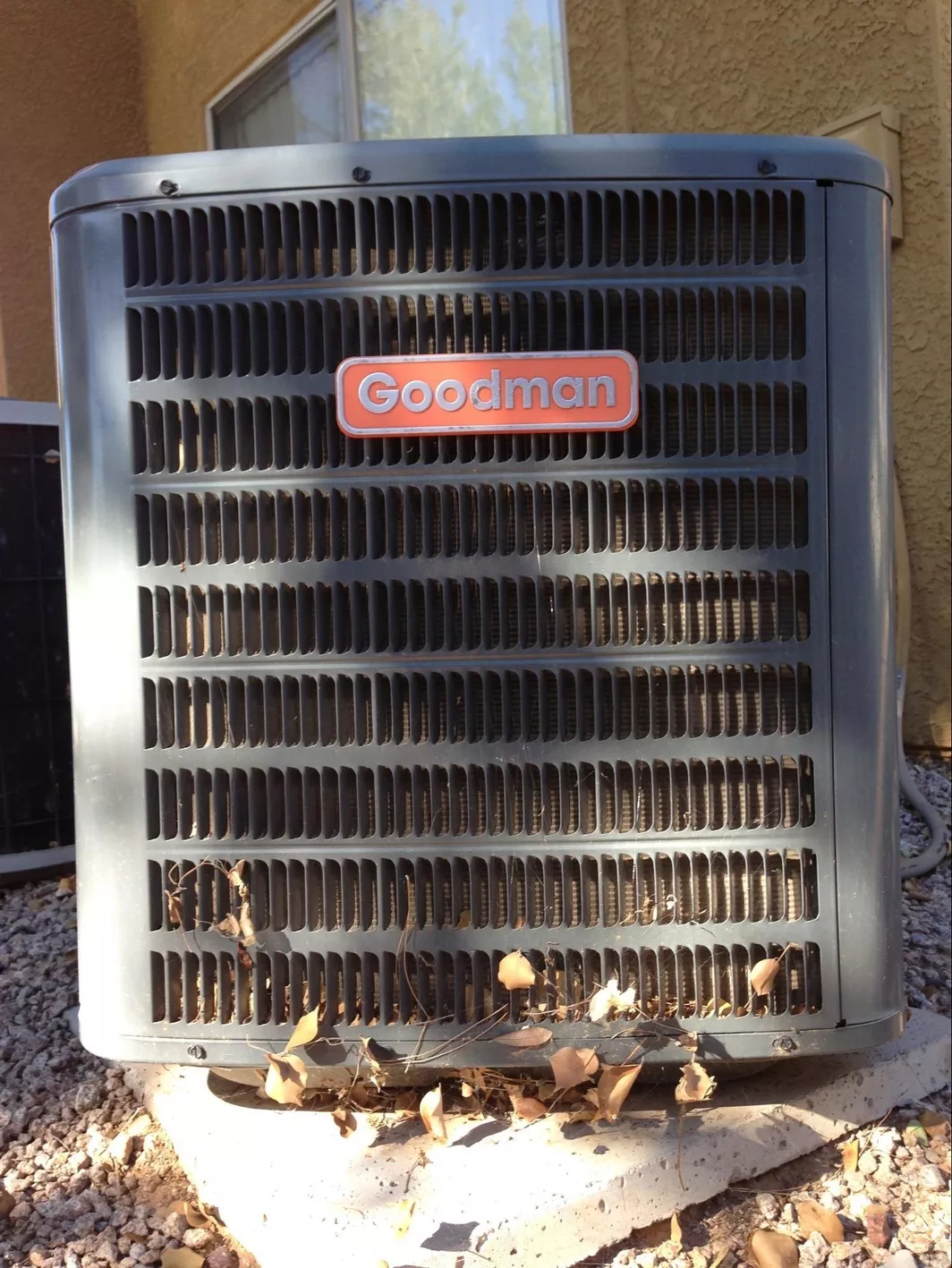
Remove any sticks or leaves from the fins of the outdoor unit
To clean the condenser coil itself, start by shutting off power to the outdoor unit. (You’ll see a small electrical box on the wall next to the outdoor unit.)
Next, remove the top of the condenser and locate the copper lines inside the outdoor unit. If these copper lines appear dirty, you can apply some *coil cleaner to them. Set your hose to a low setting and spray the coils from top to bottom, but be careful not to soak the fan motor.
*Pro tip: Before purchasing coil cleaner, we recommend consulting with the AC manufacturer or an HVAC tech. They can recommend a cleaner that will work effectively without damaging the coils.
After you gently rinse the cleaner off of the coils, you can reattach the condenser lid and turn on the power again. If the hot air problem persists, or you don’t want to clean the coils yourself, contact an HVAC professional for assistance.
Problem #3: An issue with the compressor
The compressor is a major AC component located in the outdoor unit of your air conditioner. The purpose of the compressor is to circulate refrigerant throughout the AC system.
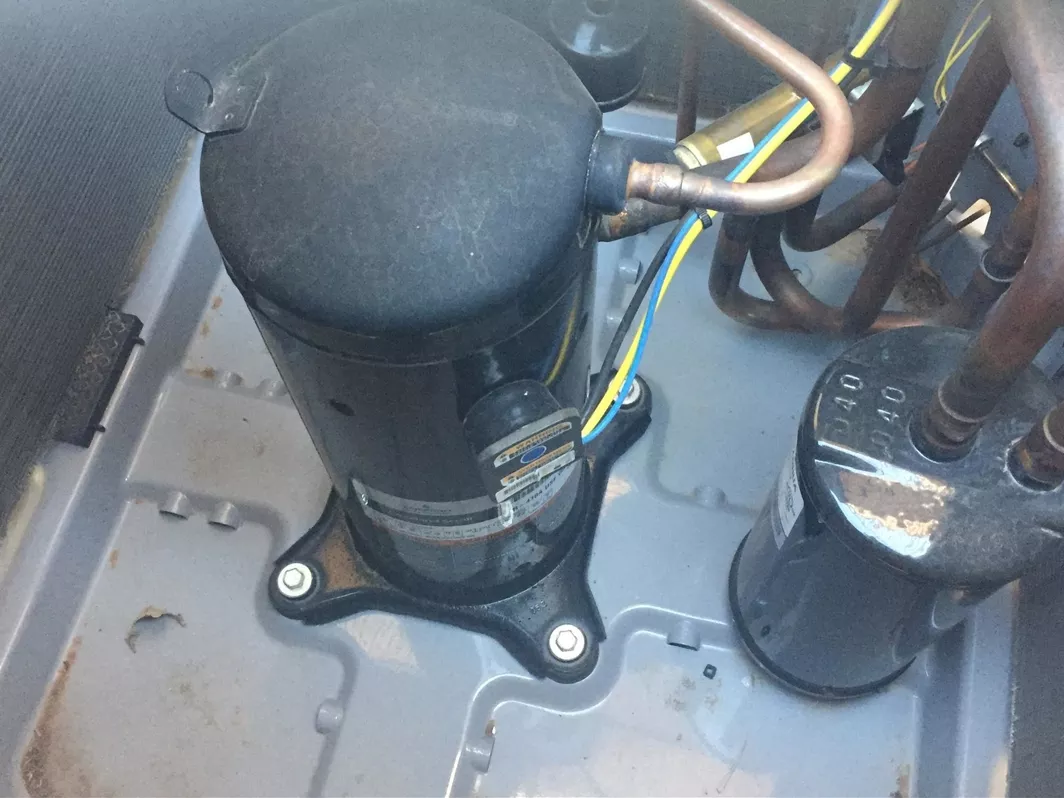
The compressor is located inside the outdoor unit
If the compressor is malfunctioning, the entire cooling process will suffer, leading to higher indoor temperatures and wear and tear on several AC components.
How to know if your compressor is malfunctioning
Besides the hot air issue, the following signs also indicate your compressor is struggling:
- Loud noises or vibrations coming from the outdoor unit
- The outdoor unit isn’t turning on at all
- The AC circuit breaker keeps tripping
How to fix a malfunctioning compressor
Unfortunately, if your compressor is acting up, there’s not much you can do to fix it yourself. You’ll need to contact an HVAC professional to inspect the compressor.
Need an AC repair from a San Antonio tech?
We can quickly fix whatever is causing your AC to blow hot air. When you hire Jon Wayne, you can count on exceptional customer service and repairs done right—the first time.
Learn more about what to expect when you hire us by visiting our AC repair service page.
